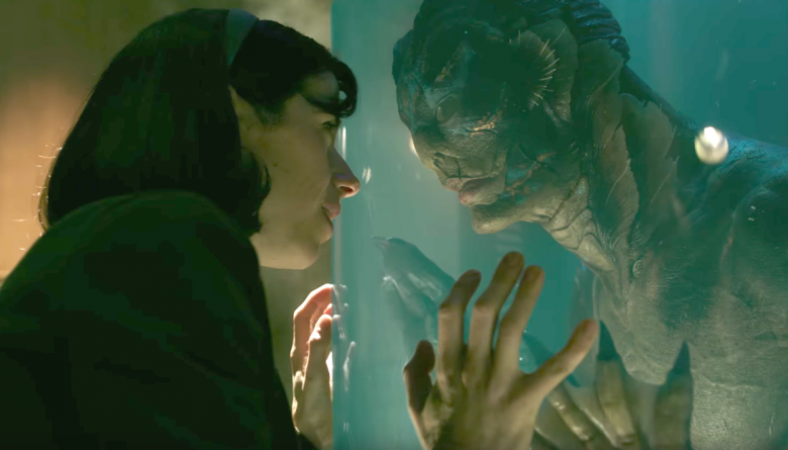
The Shape of Water: Exploring the 'Other'
The open sequences of dream-like film The Shape of Water show the lead character Elisa (played by Sally Hawkins) masturbating in her bathtub. (It’s rather a surprise if you last remember seeing her playing an upper middle class housewife in Paddington Bear 2!)
Elisa is a mute cleaner in a grim 1960s world, working at a top secret US factory. Her boss is cruel and weird and sexually predatory. However, Elisa finds herself mesmerised by a wet amphibian creature with liquid eyes. This South American water animal, with his sensitive and expressive face, is kept chained in this underground industrial plant and is brutally treated by Elisa's sadistic boss. By contrast Elisa befriends the creature, offering him boiled eggs to eat, and playing him carefully selected music from her gramophone. She falls in love with him and rescues him, with a little help from her friends.
She keeps him in her bathtub at home, the same place as her previously solitary sexual pleasure. It's a tender tale, and the human-animal couple build up a common language through shared gestures. They find similarities in their pleasure in water, their gentle natures, and their shared muteness. Eventually, they make love, in the water-filled bathroom that becomes an aquarium, or an ocean. Elisa finds a way out of her solitude. The creature even has god-like healing qualities.
Psychologically speaking, Jungian thinkers might call this creature a symbolic representation of the woman's inner maleness, or "animus". Elisa, as part of her psychological development, finds an overwhelming attraction to this weird male creature. The pull is so powerful that she actually wants to have intercourse with him, despite his gills, and slime. They are both similar in strange ways, but opposites. Elisa's encounter with her maleness leads to a psychological flowering. She becomes more assertive, more unique. When she makes love with the creature she floods the theatre underneath her flat, because she has left the taps on. She doesn't seem to care, she is in love. This inner dialogue between masculine and feminine qualities, represented graphically in the "Shape of Water" opens up new possibilities. Tragically, the creature cannot stay for ever, and has to be released back into the ocean, back into wild currents that can fully contain it, but Elisa has changed forever.
If you are very extroverted, you might always be looking for this magical other, like Elisa, outside yourself. Perhaps, you will find this magical creature. But even if you do find him or her, you will still need to attend to your inner romance. What does your inner maleness, or femaleness look like? If you were to provide it food (eggs) or culture (music), what would it respond to?
In our outwardly obsessed culture, where we are always striving for material concrete things you can touch and feel, it is easy to neglect such stirrings. Yet, our relationship with our inner selves, especially the more primitive and creature like aspects that don't see the light of day, may be extremely rewarding. Just think of all that time you spend thinking about other people; but how well do you really know yourself?










